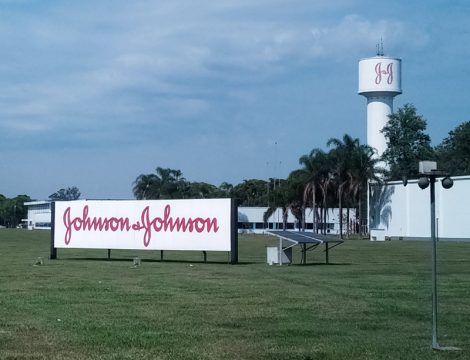Johnson & Johnson Preparing $3.9 Billion for Talc Settlements

Pharmaceutical giant Johnson & Johnson has set aside $3.9 billion for talc-related litigation, according to a regulatory filing this week with the Securities and Exchange Commission in Washington D.C.
The company said it’s now facing more than 25,000 lawsuits related to various talc products that have allegedly caused cancers, primarily from asbestos fiber contamination.
The $3.9 billion is almost double the amount that Johnson & Johnson reported being set aside for litigation expenses in its 2020 fiscal year-end results.
A Missouri Court of Appeals earlier last year upheld a lower-court ruling, but reduced the award from $4.69 billion to $2.12 billion in damages to 22 women who claimed that J&J’s iconic baby powder caused their ovarian cancer. The company is currently appealing that award to the United States Supreme Court.
“The company continues to believe that it has strong legal grounds for the appeal of this verdict, as well as other verdicts that it has appealed,” the company said in the official filing Monday. “Notwithstanding the company’s confidence in the safety of its talc products, in certain circumstances the company has and may settle cases.”
Johnson & Johnson has continued to insist that its products are safe to use, and that any cases of contaminated talc were isolated incidents or because of faulty testing.
Mesothelioma Cases Are Rising
While the vast majority of cases pending against J&J are related to ovarian cancer, a small number in recent years have involved malignant mesothelioma. Exposure to asbestos remains the only proven cause of this rare and more aggressive cancer.
In one 2019 lawsuit, a state court in New York City ordered Johnson & Johnson to pay $325 million to a woman and her husband who alleged that long-time use of its baby powder caused the woman’s pleural mesothelioma cancer.
In the first ruling ever against the company regarding contaminated talc and mesothelioma cancer, a jury in New Jersey ordered J&J to pay $25.9 million to a couple in April of 2018.
That same year, a Los Angeles Superior Court awarded $21.7 million to a woman who alleged that 20 years of using baby powder led to her mesothelioma.
Settling Lawsuits in Bulk
In October of 2020, the company announced that it had agreed to pay approximately $100 million to settle more than a thousand lawsuits, including a small percentage involving mesothelioma.
The settlement came after asbestos-contaminated talc was found in the baby powder. It was the first time J&J had settled talc-related lawsuits in bulk.
In 2019, the company recalled 33,000 bottles of its baby powder out of what the company termed “an abundance of caution.”
In May of 2020, J&J announced that it would stop selling its talc-based baby powder in Canada and the U.S., replacing it with a cornstarch-based product. The company attributed the stoppage to changing consumer habits and “misinformation around the safety of the product and a constant barrage of litigation advertising.”
Talc and Asbestos Mix Naturally
The issue of contaminated talc stems from the mining of the product, which often is found near the earth’s surface close to asbestos, another naturally occurring mineral.
Talc, heralded as one of the softest minerals in the world, is used in many consumer and industrial products.
Earlier in 2020, the U.S. Food and Drug Administration announced that asbestos-contaminated talc was found in nine of the 52 cosmetic products tested during a year-long study.
Under current law, the FDA does not regulate cosmetic products – other than color additives. That includes J&J’s baby powder. The responsibility rests with individual companies and their own safety testing.
The largest number of cases pending today against Johnson & Johnson are part of multi-district litigation in New Jersey federal court. Many others are in state courts in Missouri, California and New Jersey, according to the company.